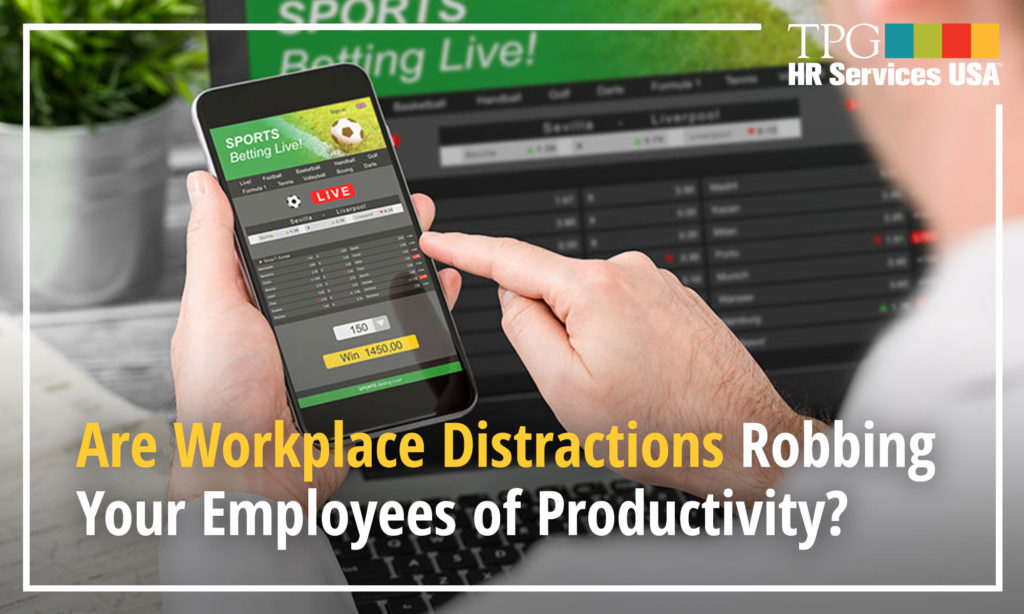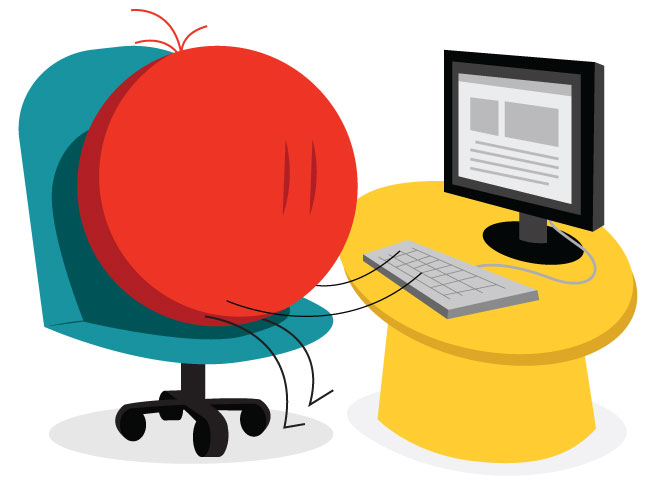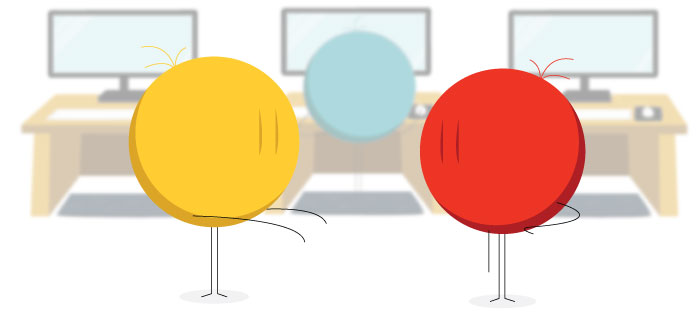
Are Workplace Distractions Robbing Your Employees of Productivity?

Ms. Pomerantz is the CEO of TPG HR Services USA and has over 35 years of Human Resources practices experience. She holds a Master’s in Human Resource Management (MHRM) and is a certified Senior Professional in Human Resources (SPHR) and SHRM Senior Certified Professional (SHRM-SCP). Mary also serves as CEO of Mary Pomerantz Advertising, one of the largest recruitment advertising agencies in the country. Earlier in her career, she was president of the 17th largest staffing firm in the country.

In today’s world of one million and one different things all vying for our attention at once, people tend to miss out on what truly matters. It’s easy to get sidetracked from what truly holds sway in our lives between the multiple 24-hour news cycles telling us what and how to think, technology doggedly seeking to supplant the vital aspects of our day-to-day functioning combined with the ever-expanding excess of available information. This inundation can overflow into your professional life, sweeping you away from your job responsibilities and creating workplace distractions.
“The majority of today’s white collar employees spend most of their time sitting in front of a computer at work…”
When occupied with routine duties at work, something new and interesting can appear, offering temporary solace from the mundane. The problem is that each diversion not only enables us to postpone less flashy but more important affairs but we, by nature, want to be distracted, even if we aren’t completely aware of that desire. The state of constant stimulation, which many of us have grown accustomed to, can make it difficult to stay focused on one task for an extensive amount of time, often required in many crucial aspects of adulthood, such as your workplace
Workplace Distractions Are Unavoidable
Unless all of your employees have been lucky enough to find their dream jobs, counter-productive distractions at your place of business are as inevitable as death and taxes. Most jobs consist of carrying out the same responsibilities over and over with slight variations in each instance so even the best-case scenarios will involve some casual interruptions.

The majority of today’s white-collar employees spend most of their time sitting in front of a computer at work, which in separate contexts represents endless avenues of entertainment. At the workplace, computers take on a new meaning which can be difficult to adapt to for some. Any non-work-related internet occupations are typically dealt with by applying broad restrictions to visiting numerous types of recreational websites, and while this approach is sometimes regarded as a panacea, it is anything but airtight. And the internet is just the tip of the iceberg; the best way to think of time-stealing activities at work is: if there’s a will, there’s a way, leaving diversions in plentiful supply. The usual suspects when it comes to workplace distractions include:[1]
“When managed correctly, breaks are essential steps in maximizing efficiency and can even help increase overall output.”
- The Internet: No filter can block every site that isn’t related to work. Furthermore, some positions entail job responsibilities like doing research on websites that would otherwise be accessed for leisure or managing company profiles on social media platforms that are designed to hold your attention for as long as possible.


- Socializing with co-workers: It’s important that your employees get along, as that fosters productivity, but if they become too friendly, this can have the opposite effect. In the worst cases, it might lead to unwanted socializing or inappropriate workplace behavior.
- Home & family responsibilities: Most adults have full schedules outside of their jobs and these obligations can bleed into their work lives if the appropriate boundaries are not implemented.
- Temperature & Lighting: The oft-unstated inner turmoil caused by unmet preferences regarding the degree of heat and light within the workspace can be sources of subtle anxiety, potentially having a pronounced effect on long-term productivity. Unfortunately, there isn’t a blanket solution for this issue. Some parties are bound to be unhappy no matter which policies are enacted.

The root of these workplace distractions largely stems from human nature, so you’re unlikely to find a perfect answer to any of the above, barring your workforce comprising of an entirely automated staff.
How Can You Help Your Employees Help You?
To most effectively address workplace distractions, the focus should be placed on minimizing them rather than eliminating them entirely. Living, breathing workers are inclined to be distracted at one point or another, so as an employer, you should seek to regulate these factors, shaping them to your advantage. When managed correctly, breaks are essential steps in maximizing efficiency and can even help increase overall output. Mandating a handful of short breaks throughout the day can not only extend the daily endurance of your employees but will also reduce the occurrences of organic, unrestricted hiatuses triggered by fatigue or boredom. An unsanctioned five-minute break can quickly turn into a 20-minute one or more without the necessary self-discipline and guidance from management.

Performance management is key in boosting the return on your investment. To get started, look at what works well within your workplace and what doesn’t. For instance, what were you doing when your employees set a record in an important performance metric? What are you doing now? Document everything and make the data work for you. Communicating clearly defined goals to each of your employees will also go a long way in augmenting the happiness of your employees and in turn, the health of your company. Transparency and trust should be among your first goals when turning your business into a more efficient machine.[2]
Reward the employees who meet their pre-defined goals and talk to the employees who don’t, determining what went wrong and how to produce a more favorable outcome in the future. When properly leveraged, these practices can take your company to the next level.[3]
As an entrepreneur, you’re paying for every minute that your employees spend at the office so you’ll want to do everything in your power to ensure that each minute is spent as productively as possible. Typically, this responsibility would fall to your human resources department but if they have too much on their plate, it can fall by the wayside, potentially causing your company to miss out on vital revenue. If this sounds familiar, consider outsourcing some or all of the many roles HR is meant to fill. TPG HR Services USA is a national HR provider offering a full suite of administrative services including employee relations. We can lighten your business’s logistical load, enabling you to focus on your core services while streamlining employee workflow. Call us today at 732-917-6000 to learn more about how we can help you.
